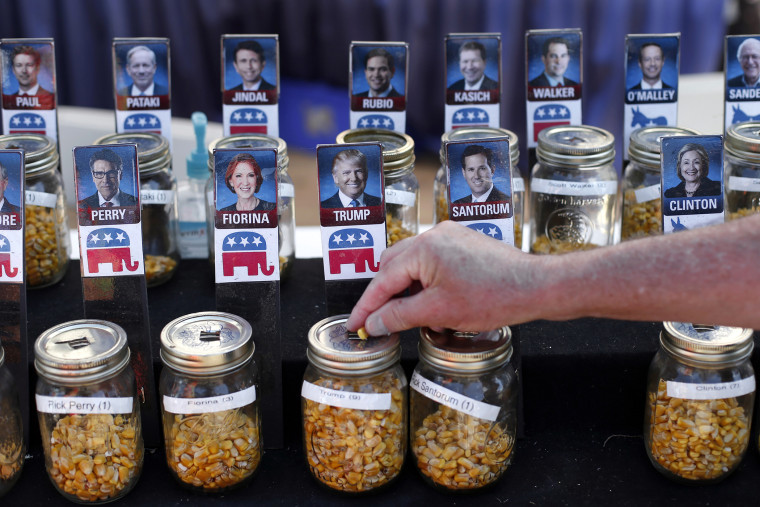A few hours before the Iowa caucuses began, FiveThirtyEight's Nate Silver told readers, "[D]on't be shocked if the polls are way off."
Whether or not the results were "way off" is a subjective question, but as the dust settles, it's safe to say those who relied exclusively on polling data going into last night were surprised by the results. In the final round of surveys, how many showed Donald Trump positioned to win Iowa? Just about all of them -- with some showing him ahead by double digits.
Yahoo News published this item this morning.
In the end, the biggest loser in the Iowa caucuses might not be the campaigns of several presidential hopefuls, but the public perception of polling organizations that were again off the mark. heading into Iowa, GOP contender Donald Trump and former Secretary of State Hillary Clinton were projected to win the respective Iowa caucuses. Instead, Ted Cruz took the GOP race, while Clinton and Bernie Sanders finished in a virtual dead heat for the Democrats. And on Tuesday, the pollsters faced more scrutiny after the Iowa results were in. Here's a typical headline (from Bloomberg): "Iowa's Other Losers: Polls That Showed Trump Ahead Before Caucus"
Even the Bloomberg Politics/Des Moines Register Iowa Poll, conducted by J. Ann Selzer, whose track record is excellent, wasn't quite right.
So, what happened?
One thing to keep in mind is that voter attitudes change towards the very end of the process, especially in nominating contests, and polls conducted well in advance of the caucuses don't capture those who make up their minds at the last minute. Politico ran a piece overnight noting that Selzer's poll "was conducted last Tuesday through Friday, meaning it also may have missed any late movement."
Indeed, this is exactly what happened among Iowa Republicans four years ago: Rick Santorum didn't lead in any poll -- literally, none -- going into the caucuses, but he nevertheless won thanks to an 11th-hour shift in his favor.
Also note, one of the single hardest things to do in polling is determining who's going to actually show up when it counts. Campaigns talk all the time about their "ground game" and get-out-the-vote efforts, but factoring in this hard-to-quantify aspect of a candidacy is incredibly difficult.
A Bloomberg Politics report quoted Selzer this morning saying, "We always thought, and we certainly heard about, the ground game. You can be for Trump, but if you don't show up, it doesn't matter."
Nate Silver explained -- well ahead of the results -- that Iowa is simply "the hardest state to poll." He mentioned a variety of factors, including "substantial number of voters wait until the last few days of the campaign to make up their minds," which is made more complex still by Iowa hosting a caucus instead of a primary and GOP voters, at least this year, facing an enormous field of candidates instead of a small one.
Taken together, do the results mean we should pay less attention to polls? Not exactly, they still tend to be a pretty reliable indicator of what to expect in an election. But it's worth keeping in mind that caucus polling tends to be less predictive than primary polling, and primary polling tends to be less predictive than general-election polling.
An added wild card, of course, is Donald Trump's unusual candidacy, which appeals to some voters with sporadic interest in politics. If his candidacy is going to thrive, he'll obviously need these backers to actually participate in the process. In Iowa, the Trump campaign came up short.
The New Hampshire primary, where Trump has dominated for months, is a week from today.
